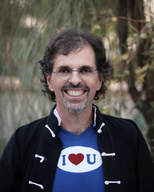 I just came across an article, “Why Creative People Sometimes Make No Sense,” which discusses the paradoxical nature of creative individuals. The article cites the work of one well-known researcher who identified 10 paradoxes observed in people who are considered creative. From the standpoint of Deep Creativity, these apparent contradictions make a great deal of sense. So, we will take a closer look at a few of them, starting with I call the Paradox of Passion: Creative individuals have a great deal of energy, but they are also often quiet and at rest. Creativity is not the exclusive domain of a few special individuals. Each of us has been granted the gifts from which creativity arises. Perhaps the most important of those gifts is passion. I know that you are passionate about something, even if you have yet to identify that passion and give it a name. The individuals that we call “creative” have not just done that; they have given themselves to their passion and thrown themselves entirely into the creative experience. And what is passion, after all, but the energy of desire? If you are passionate about anything, it energizes you. Your passion drives you every day. It may be the reason you jump out of bed in the morning, eager to get started on the adventure of the day. That adventure begins when you immerse yourself in the activities and experiences you enjoy. If your passion involves creativity, then the magic happens when you “lose yourself” in the act of creating, which means that your attention is so absorbed in what you are doing that all else disappears from your awareness. Passion breeds single-mindedness. People who are passionate about creativity may lose track of absolutely everything when they are engaged in the creative act, including: social obligations; mundane chores and responsibilities; bodily needs like food and sleep; time and space; and even their sense of self. For moments, hours, or even days at a time, their attention is consumed entirely by the creative experience. Passion also breeds quiescence, which is the ability to silence the mind entirely. As I explain in Deep Creativity, if you fix your attention on one thought, that will lead you eventually to a condition of “no thought.” In the mental silence that ensues, you connect most intimately with the one and only source of your creativity. That source abides fully in the present moment. In order to create, you must live this moment to the max. Whatever you have been in the past or will be in the future has no bearing. Creativity happens when you give yourself entirely to the experience of the present: Here and Now, Baby! Time is not a factor in creativity because the creative experience transcends time. This is something that psychologists and neuroscientists who write about creativity have failed to grasp. For instance, the late great Oliver Sacks misidentified time as an essential element of creative breakthroughs. Yet, he would have recognized that most such breakthroughs happen instantaneously. That is why we talk about “Eureka!” moments. Those who claim that some kind of waiting period is needed for creativity to arise need to answer one simple question: What exactly are you waiting for?
0 Comments
Leave a Reply. |
I want to hear from you! Please share your questions and comments. And sign up for my newsletter, where I will pass along the insights, ideas, and inspiration that come my way.
Contact me:Archives
November 2023
|

 RSS Feed
RSS Feed
